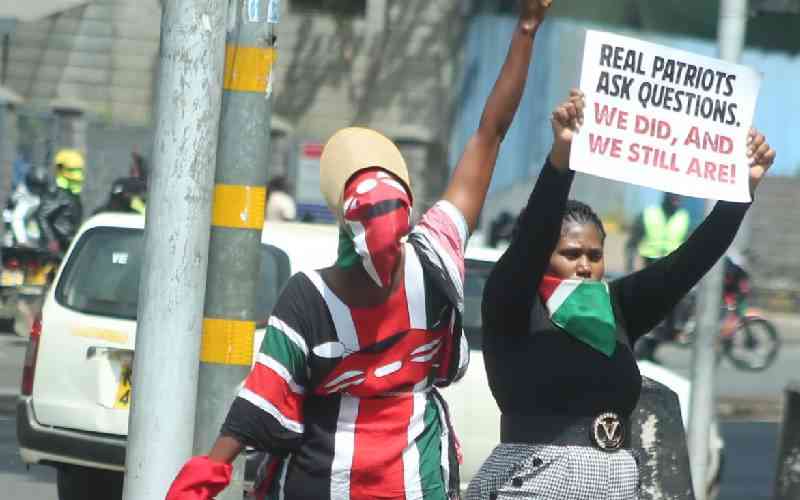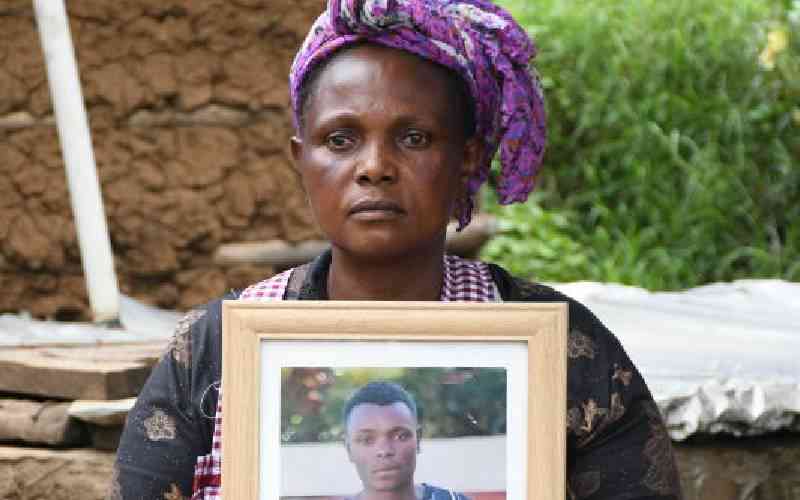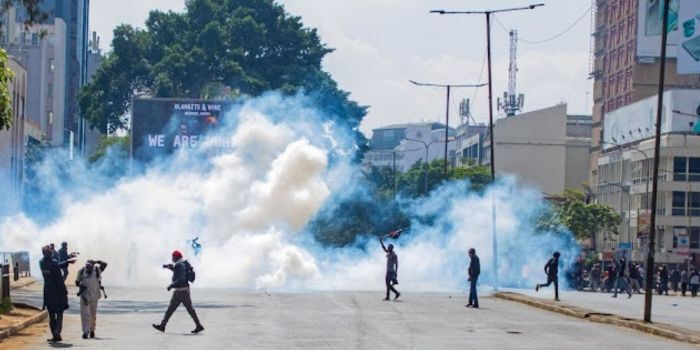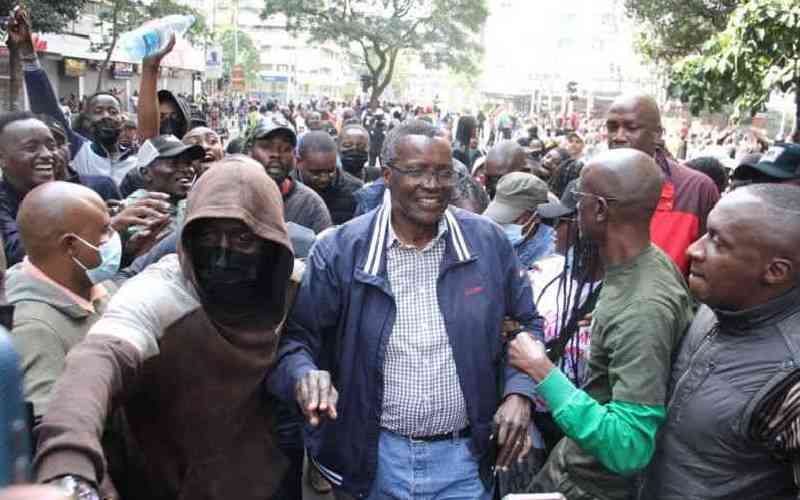Kenya Gen Z Protests & Finance Bill Aftermath
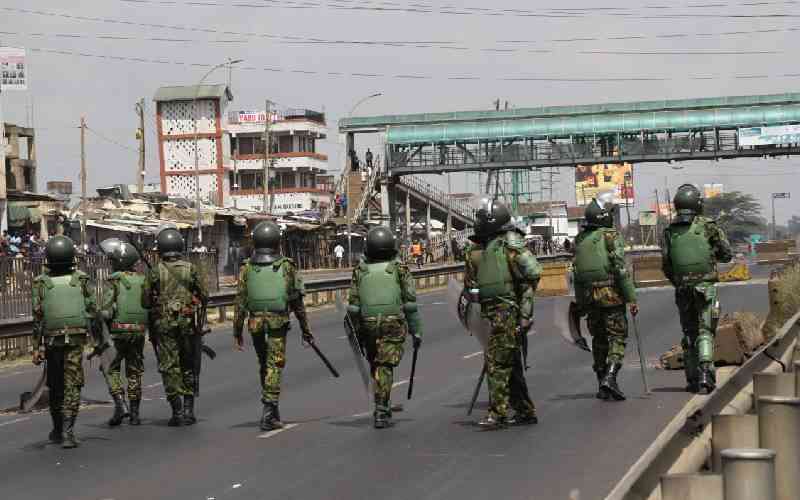
The nationwide Gen Z-led protests on June 25, 2025, marked a solemn anniversary of the tragic events of June 25, 2024, when scores of young protesters were killed during anti-Finance Bill demonstrations. What began as a commemoration of fallen heroes and a call for reform swiftly escalated into widespread chaos across Kenya, revealing deep-seated tensions between the youth and President William Ruto's administration. These demonstrations, largely organized through digital platforms, represent the birth of a generational movement demanding accountability and inclusion, which the government has been urged not to underestimate or suppress.
The State's response to the protests was characterized by what critics described as brute force and fear-driven control, mirroring authoritarian tactics. Police officers were deployed to block protesters, particularly along the Thika Superhighway from marching into the Nairobi Central Business District (CBD). Reports emerged of police using tear gas and live bullets to disperse crowds, leading to tragic outcomes. Interior Cabinet Secretary Kipchumba Murkomen defended the police's actions, issuing a controversial directive authorizing the use of lethal force against anyone approaching or attacking police stations, claiming the protests were an "attempted coup" by "hired criminals" intended to destabilize the government. He emphasized that officers would be defended for using their weapons in self-defense and to protect state institutions, despite widespread concerns over police excesses.
The June 25 protests resulted in a devastating loss of life and numerous injuries, throwing many families into mourning. At least 15 individuals were officially declared dead across the country. Among the identified victims were 23-year-old Kevin Njau, a young father-to-be who was shot dead at Kikuyu bus stage, leaving behind an eight-month pregnant wife, Winfred Wangare. Other casualties included Victor Otieno, a 24-year-old college student shot dead in Thika; Kenneth Ouma, a young man tragically killed by a stray bullet while working out at a gym in Karatina, Nyeri; Fred Wamale, a security guard at KPLC's Stima Plaza, struck by a stray bullet; Ian Muhindi from Juja, Kiambu, shot in the head while watching protests from his rooftop; and Daniel Mwangi, an innocent bystander allegedly shot by Police Constable Ephantus Njeru in Nakuru. Families flocked to mortuaries like Nairobi Funeral Home to identify their loved ones, highlighting the harsh reality of police shootings and the profound grief inflicted.
Beyond the human cost, the protests left a trail of significant property damage and economic disruption. Numerous businesses were looted and vandalized, with Quickmart Supermarket reporting that two of its branches in Nairobi CBD and Ruiru were affected, though the company denied claims of fatalities at its stores. Government and private institutions also suffered extensive damage; the Kikuyu Law Courts were burned down, destroying case files and halting legal services, an act Chief Justice Martha Koome condemned as "terrorism against Kenya’s justice system." Additionally, sub-county and county offices, Kenya Revenue Authority (KRA), National Social Security Fund (NSSF), Post Bank, and Safaricom's Embu branch were among the extensively vandalized sites. Some police stations, such as Ndunyu Njeru Police Station in Nyandarua, were stormed and set ablaze by enraged mobs, often triggered by local grievances or escalating confrontations.
The aftermath of the protests quickly devolved into a political blame game, with various leaders levelling accusations. A section of pro-government lawmakers, including Kimilili MP Didmus Barasa and National Assembly Majority Leader Kimani Ichung'wah, squarely placed the blame on former Deputy President Rigathi Gachagua, accusing him of orchestrating the unrest, hiring goons, and targeting properties, including Ichung'wah's own family and businesses in Kikuyu. Embu Governor Cecily Mbarire echoed these sentiments, alleging Gachagua's involvement in sponsoring violent groups to infiltrate protests in Embu, aiming to undermine her administration. In response, Gachagua vehemently denied these claims, asserting that the government's accusations of paid protesters were "cheap propaganda." He counter-alleged that genuine Gen Z protesters were deliberately blocked from entering the capital to allow state-sponsored goons to loot and destroy property, particularly targeting businesses from the Mt. Kenya region, under police protection. He also accused the government of temporarily switching off TV signals to facilitate these actions.
Other political figures offered varied perspectives on the protests. Deputy President Kithure Kindiki blamed a section of religious leaders and the diplomatic community for allegedly fueling the unrest by inciting youth to picket. Homa Bay Town MP Peter Kaluma controversially claimed the Gen Z protests had morphed into a "Mt. Kenya-driven insurrection" against President Ruto, rather than a unified national movement, urging his Luo Nyanza constituents to avoid participation. Nominated Senator Karen Nyamu criticized the chaos, feeling it overshadowed the solemn memorial purpose, and questioned the protests' organization, suggesting potential manipulation by political figures. Conversely, Busia Senator Okiya Omtatah called for a "revolution" through voting and organized change, warning against a chaotic uprising. He emphasized the need to channel public rage constructively, highlighting the dangers of uncontrolled chaos and advocating for mass voter registration and electoral transparency as pathways to reform.
In response to the violence, Chief Justice Martha Koome condemned the burning of the Kikuyu Law Courts, emphasizing the attack's impact on justice delivery and urging dialogue to address national unrest. The Independent Policing Oversight Authority (IPOA) launched investigations into police conduct, with one officer, Police Constable Ephantus Njeru, charged with murder for allegedly shooting Daniel Mwangi. Police sought extended detention for suspects like Suleiman Wanjau Bilali and Robert Otiti Elwak, accused of mobilizing unlawful protests through social media and inciting violence. The judiciary grappled with balancing the constitutional right to peaceful protest with addressing criminal elements who exploited the demonstrations.
The protests underscored the emergence of Gen Z as a formidable and ideologically driven force in Kenyan politics. They are described not merely as protesting against the Ruto regime but as rejecting a systemic failure to listen and include them. Raised in an era of broken promises, economic hardship, and political exclusion, this generation demands accountability, influence, and a governance model that reflects their values. Their defiance, expressed through unorthodox but intentional activism like pre-written eulogies and digital mobilization, signifies a demand for relevance and a challenge to entrenched power structures. Experts suggest that the government's continued use of force will only deepen the legitimacy of these annual protests, set to culminate ahead of the 2027 elections, potentially attracting political players seeking to weaken Ruto's bid for a second term.
For the government to rule peacefully and legitimately, it must acknowledge this generational shift and actively engage with Gen Z's "language," listening, learning, and adapting. Suppressing this movement with military tactics and force is seen as a miscalculation, as it will not stifle the young generation's longing for dignity and agency. The survival of Ruto's presidency and the long-term legitimacy of his political establishment hinge on understanding and including this influential demographic in the nation's plans, rather than dismissing their demands as merely a policing problem.








